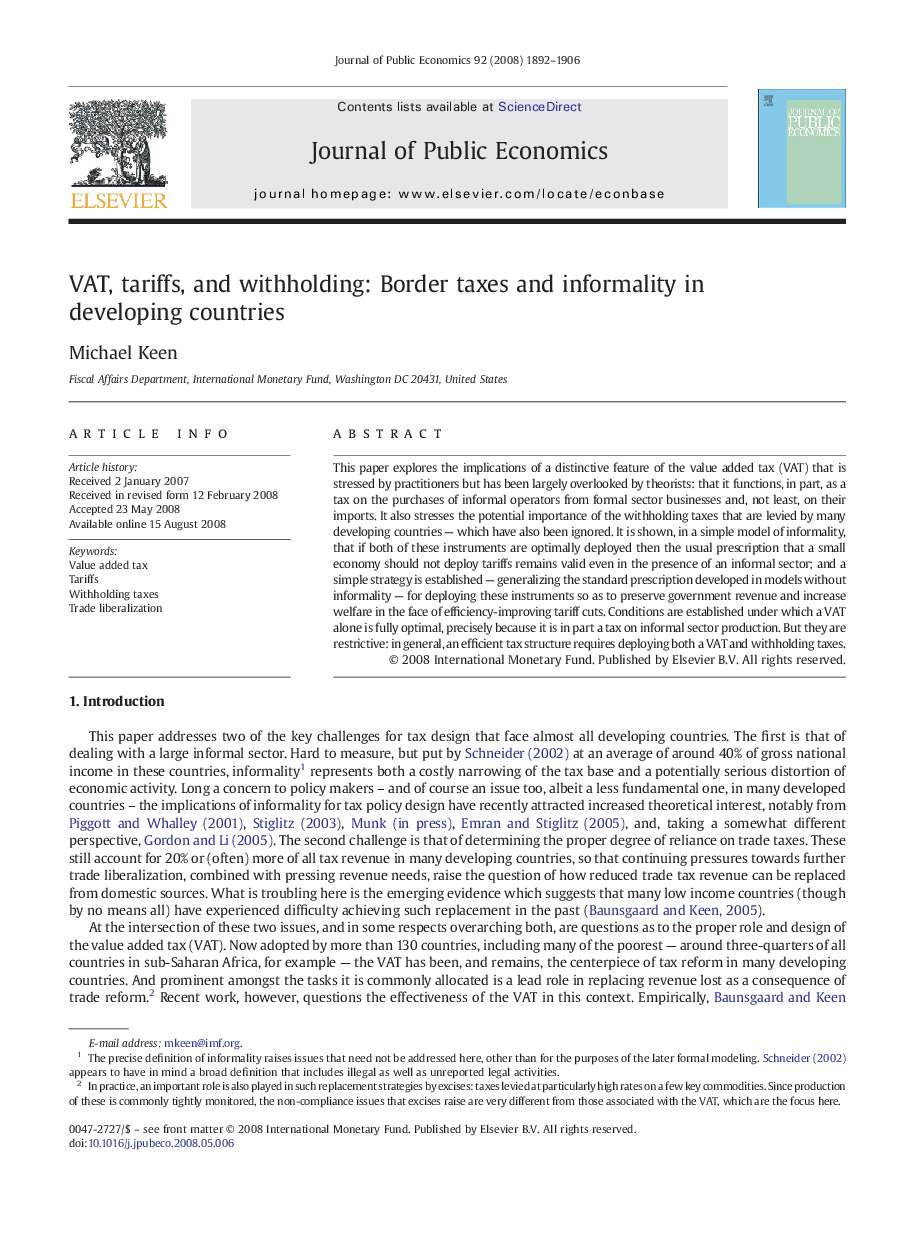| Article ID | Journal | Published Year | Pages | File Type |
|---|---|---|---|---|
| 970242 | Journal of Public Economics | 2008 | 15 Pages |
This paper explores the implications of a distinctive feature of the value added tax (VAT) that is stressed by practitioners but has been largely overlooked by theorists: that it functions, in part, as a tax on the purchases of informal operators from formal sector businesses and, not least, on their imports. It also stresses the potential importance of the withholding taxes that are levied by many developing countries — which have also been ignored. It is shown, in a simple model of informality, that if both of these instruments are optimally deployed then the usual prescription that a small economy should not deploy tariffs remains valid even in the presence of an informal sector; and a simple strategy is established — generalizing the standard prescription developed in models without informality — for deploying these instruments so as to preserve government revenue and increase welfare in the face of efficiency-improving tariff cuts. Conditions are established under which a VAT alone is fully optimal, precisely because it is in part a tax on informal sector production. But they are restrictive: in general, an efficient tax structure requires deploying both a VAT and withholding taxes.
